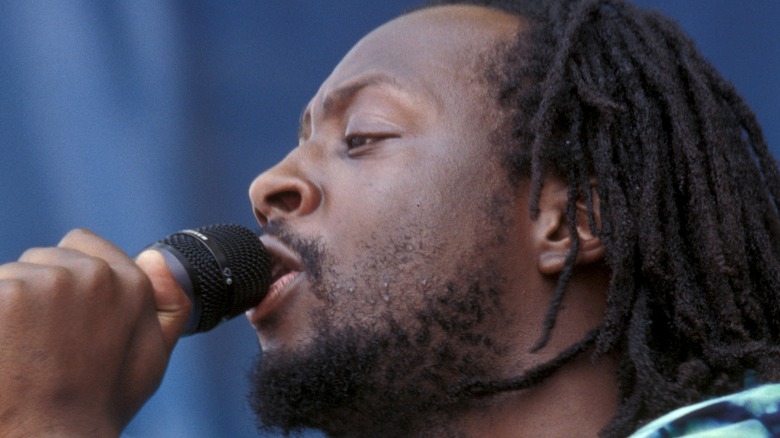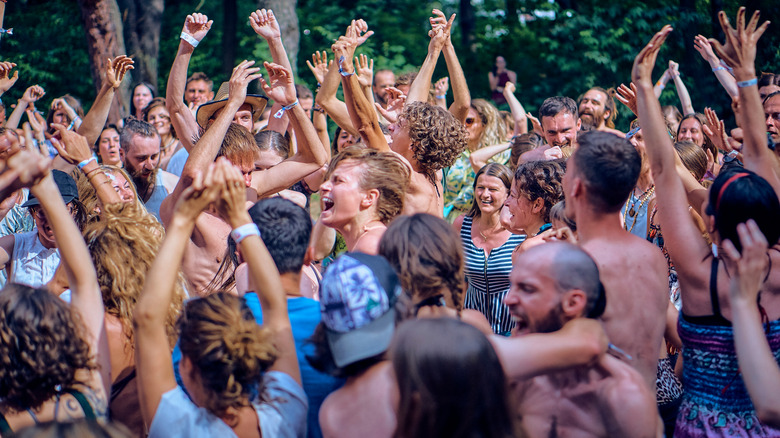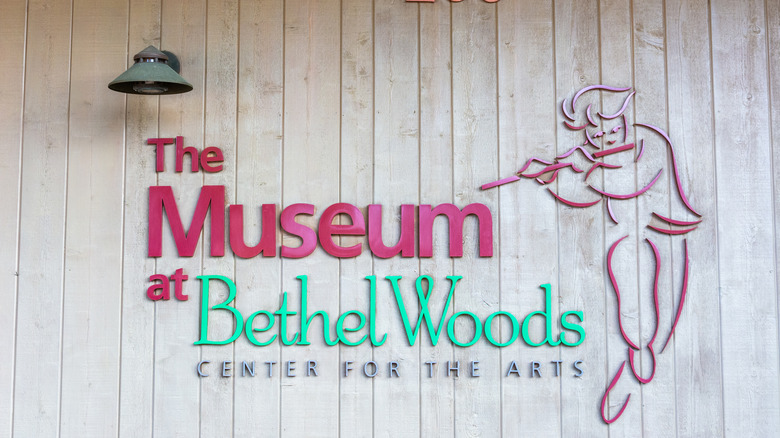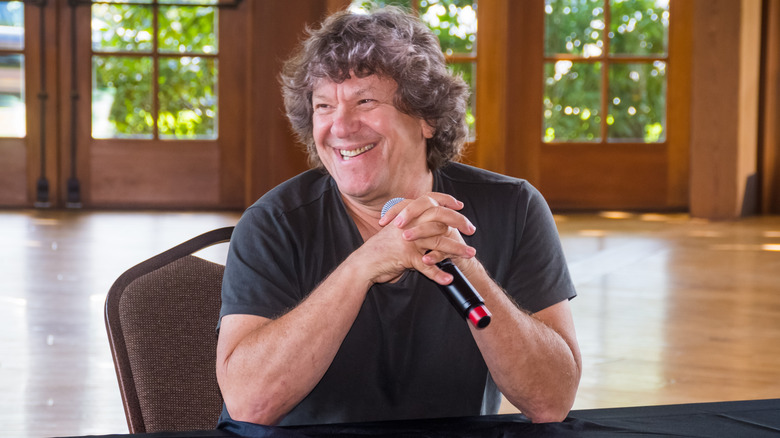Why There Will Probably Never Be Another Woodstock
What better way to close out the decade that started the Peace Movement than a concert celebrating peace and music over the course of three days? Along with fundraising for a studio, this was the concept that organizers created for what became known as the first ever Woodstock Music and Art Fair (as the poster described it), or simply Woodstock, per History. From August 15-18, the historic festival took place on a farm in Bethel, New York. It was intended to end on August 17 but Woodstock had attracted so many people, not only did organizers end up turning the paid concert into a free event, it also ended up going into a fourth day (per the Bethel Woods Center for the Arts). Close to half a million people attended the inaugural concert event that included performances by dozens of popular artists. Jimi Hendrix, The Who, Sly and the Family Stone, and several more took to the stage at what turned to be an iconic show.
Those few days would transform the small town of Bethel forever, says NPR, and become a significant moment in American history. Woodstock happened at the height of America's growing counterculture movement (via Britannica).
The chaotic 1999 Woodstock anniversary
For Woodstock's 30th anniversary, it returned to New York in July 1999 with a commemorative festival. This time it was held in the town of Rome and was financially backed and produced by MTV. But it didn't capture the same essence that was the first. Despite attracting 200,000 concert-goers it was dubbed a chaotic failure. Unlike the 1969 festival, the 1999 event wasn't held on any type of grassy land; it took place on the tarmac of an old Air Force base during some of the most brutally hot days of that month (via Rolling Stone).
Access to water was a major issue; bottles of water were priced at $4. This led to upset crowds causing a ruckus, and taking out their dehydration on performing artists and the town (via Syracuse). Some 700 people had to seek medical help because of the heat and dehydration. (A similar issue happened at the premier Woodstock show with food, but that was quickly solved with an airlift, among other things, says Smithsonian Magazine.) A lot of crime happened (via MTV), and many accuse Fred Durst of Limp Bizkit of encouraging violence when he took the stage (via Vanity Fair).
Overall, Woodstock of 1999 did not live up to the first, but it was still a historic follow-up. It was also more memorable than the celebratory 25th anniversary show that took place for Woodstock 1994. Of course, there were other commemorative Woodstock events held every decade after 1969, but 1969 and 1999 cemented their places in history books.
A golden anniversary fail
As the 50-year anniversary approached in 2019 it was announced that Woodstock would return to its original site to recreate the hippie greatness that captivated the world. Its organizers were the non-profit group that heads the Bethel Woods Center for the Arts, an organization and museum based on the farm where the 1969 mega show took place. Then Michael Lang, the co-founder of the original Woodstock, talked about his own event he planned to host in a town two hours away from the original site. Just like his introductory concert, Woodstock 50 (as it was called) was planned to be held on the same three days in mid-August 2019, with a line-up of artists from various genres, per PR Newswire in December 2018.
Only nothing ever happened. A few weeks before it was supposed to commence, organizers declared a cancellation, reported Rolling Stone. Everything went downhill when Lang and his team were attempting to host it in Maryland because they couldn't find a New York venue. Major artists were also dropping out, and internal conflict among organizers led to the final decision that brought Woodstock's golden anniversary celebration to an end. Still, some fanatics managed to make their way to the site of the 1969 concert to attend a smaller and less publicized event, reported Poughkeepsie Journal.
When Woodstock 50 was officially no more, a lot of people wondered if there would ever be another major Woodstock concert again. And could there be? While 2019 came and went, it was followed by 2020, which proved to be a year for the books.
No future for another Woodstock
A pandemic caused by COVID-19 kept most of the world at home, and it wasn't until this spring that indoor concerts finally resumed. Not only has the world changed so much culturally and socially since 1969, we are also living in a pandemic era that has shifted physical interaction. A concert such as Woodstock is likely not an ideal option as people recover from COVID-19 anxiety with crowds.
Woodstock 50 could've happened, but the odds were against organizers. There was also the issue of finances (via Rolling Stone), which is the biggest factor above all when it comes to planning any concert. And obviously things are much costlier now than they were in the late '60s. When the plans went south, Lang (pictured) announced no follow-up concert, and then an unexpected pandemic came. Now there seems to be a combination of issues that could prevent another Woodstock from ever happening again.
One of the biggest American music festivals right now is the annual Coachella Valley Music and Arts Festival, and it has a much different vibe from that of Woodstock. The fact that Woodstock 50 crumbled as quickly as it did, its very unlikely a do-over is near. Besides, as The Atlantic argues, times are so different now. What successfully happened in the '60s just can't be recreated today.
The documentary "Woodstock 99: Peace, Love, and Rage" streams on HBO Max beginning July 23; the trailer is posted on YouTube.



